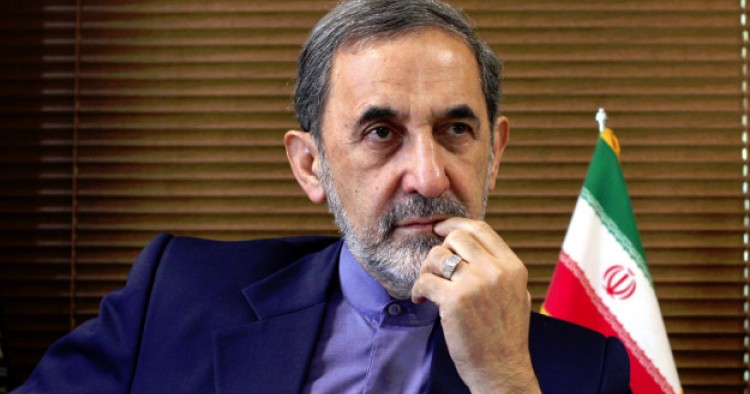Ali Akbar Velayati, a top aide to Iranian Supreme Leader Ali Khamenei, said Tuesday that Tehran hopes Saad Hariri will return from Saudi Arabia and resume his position as Lebanon’s prime minister. “We support the unity between the March 8 and March 14 [alliances], which reached an agreement to form a government after a long time, and acted in unison to make Lebanon one of the region’s peaceful countries. This is the result of the understanding and logic of the [Lebanese] people and Islamic resistance. If the Islamic resistance did not exist, what calamities would the Zionist regime have created? We hope that Mr. Hariri return to his work,” said Velayati, who held a meeting with Hariri in Beirut just before the Lebanese prime minister left for Riyadh.
Velyati also rejected Hariri’s account of their meeting. “Mr. Saad Hariri mentioned something that was among Saudi demands. He said during our meeting he had he asked [Iran] to stop interference in Lebanon. However, he did not say any such a thing and our talks were actually not tense, hostile and threatening.”
There was also another conflicting information provided by Velayati and Hariri. Velayati said that Hariri had proposed to mediate between Iran and Saudi Arabia. However, a statement from Hariri’s press office swiftly refuted Velayati’s claim. “Prime Minister Hariri did not offer mediation between any countries,” the statement said. “He presented to Velayati his point of view about the need to stop Iranian interventions in Yemen as a gateway and a precondition for any improvement in ties between (Iran) and the kingdom,” it added.
Comment: Hariri’s unexpected resignation from Riyadh on November 4 has raised concerns in Tehran. Many Iranian officials, analysts and media outlets warned that the Lebanese prime minister’s resignation is part of a broader strategy by the United States and its regional allies – particularly Israel and Saudi Arabia – to counter the growing influence of Iran and its proxies in the Middle East.
Tehran has a reason to be worried. While Hariri has never been Iran’s ally, his participation in the government provided international legitimacy to the current Lebanese government setup. It also gave a political cover for Iran’s ally Hezbollah, which has emerged as the most influential actor in Lebanon. Many in Tehran are now worried that the Lebanese government and Hezbollah will face increasing sanctions from the United States and its allies – increasing the cost for Iran’s support to Hezbollah. Others also see it as the beginning of a broader U.S.-led strategy to counter Iran and its regional allies.
Hossein Sheikholeslam, an advisor to Iranian Foreign Minister Javad Zairf, for example, warned: “Hariri’s resignation is planned by U.S. President Donald Trump and Saudi Arabia’s Crown Prince Mohammad bin Salman to destabilize Lebanon” and to weaken the Iranian-led “resistance front” in the broader region. “Is Lebanon the first phase of Trump’s strategy against Iran?” asked Donya-e Eghtesad, a reformist Iranian daily.
The Middle East Institute (MEI) is an independent, non-partisan, non-for-profit, educational organization. It does not engage in advocacy and its scholars’ opinions are their own. MEI welcomes financial donations, but retains sole editorial control over its work and its publications reflect only the authors’ views. For a listing of MEI donors, please click here.












